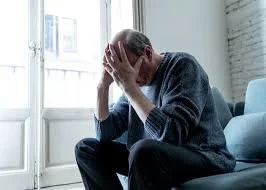Yesterday was World Mental Health Day. Historically, World Mental Health Day is simply recognized, maybe posted about, and then passed without any significant changes. Years of listening to and interacting with cancer patients have taught us at Cancer ABCs that the cancer experience permeates all parts of life, medical and other. A cancer diagnosis is a life-altering diagnosis; it cannot just be marked, moved through, or passed through. Cancer is a life-changing experience for individuals, their families, and the community.
At Cancer ABCs, we understand that cancer diagnosis and treatment are emotionally draining for all. Depression and anxiety are more prevalent in the cancer community, which often impacts treatment outcomes. Depression, anxiety, and fear can make it difficult for patients to participate in therapy, adhere to treatment regimens, and even participate in life. Patients facing mental health issues may have difficulty maintaining a healthy lifestyle, impacting how well cancer therapies work.
Often, the availability of mental health support resources is not known by patients and their families. Too many doctors who treat cancer patients regularly neglect to ask their patients about their mental health. Frequently, even if they know that a patient is struggling with any mental health concern, they fail to connect the patient to available resources! In reality, many resources are available to help patients, caregivers, and their loved ones deal with their mental health issues. So if you are experiencing depression, anger, anxiety, or feel things aren’t right, ask your doctor to connect you to help.
Most hospitals have social work departments that are there to assist you. If your doctor cannot help, call the American Psychosocial Oncology Society (APOS), which offers a toll-free national Helpline (1-866-APOS-4-HELP) as a resource to help people with cancer and their caregivers find counseling services in their own communities. You can also send an e-mail to info@apos-society.org.
The following information will be requested when you call or write:
Caller’s name (spelling of the last name)
Contact phone number(s), including area code
Patient’s city/town and state of residence
Zip code of the location where you are searching for a referral
Calls are accepted 24 hours a day through a voicemail system and then handled by trained staff members who have access to a national directory of community mental health resources. Helpline inquiries are normally returned within 24 to 48 hours.
For additional information, visit http://www.apos-society.org/.
There is no reason that anyone with cancer should suffer mental health issues alone.



